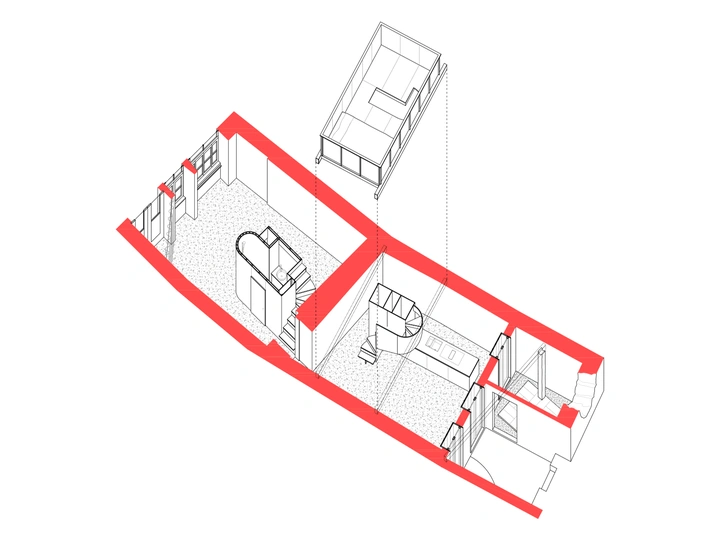In praise of nothing, or the politics of not-to.

Maria Rebelo
Atelier local is an architecture studio founded in 2019 by João Paupério (1992) and Maria Rebelo (1991), in Valongo. As a matter of circumstances, the atelier's professional practice has mainly been focused on the renovation of single-family dwellings, but also on a broader reflection on collective housing. Whether through participation in collective housing competitions or through theoretical research focused on previous public housing programmes, the atelier has developed a particular interest in the role these have played in the urban political ecology framing the construction of contemporary urban peripheries. In addition to architectural design, the founders of the studio regularly develop written reflection, having published essays in magazines and journals such as Plot (Argentina), lieuxdits (Belgium), Ark and PianoB (Italy), Engawa (Spain), Failed Architecture (Netherlands), Trans (Switzerland), Psiax, ArteCapital or Punkto (Portugal). Together with Ana Catarina Costa & Francisco Ascensão, they also integrate the coordination team of a research project titled "An archaeology of Utopia" which aims to map and reflect upon the housing neighborhoods built during the Portuguese Revolution (1974-75) by the SAAL programme. Recently, the first two houses refurbished by the atelier have been respectively awarded an honorable mention (2nd prize) in the MGD prize for young architects by the Portuguese Order of Architects and a selection for the Open-House Porto 2023.
Both Maria and João are architects graduated from the University of Porto (FAUP) and have previously worked for Baukunst (Brussels). Maria has also worked as an architect for Atelier da Bouça (Porto). João is currently a PhD candidate and researcher at CEAU-FAUP, as a grantee of Fundação para a Ciência e Tecnologia. Recently, they have been invited to present their work or that of the studio at ISCTE (Lisbon), the University of Évora and the Institute of Philosophy of Universidade Nova (Lisbon).
Our proposal consists in a short presentation of our very first project for a house. In their short manifesto “Il fera beau demain” (1995), Anne Lacaton & Jean-Phillipe Vassal issued a warning to those who design and build today: “one deprives oneself of extra-ordinary architecture for the sake of a little of bourgeois comfort”. Against that, the refurbishment of this bicentenary house rehearses a kind of anti-aspirational aesthetics. In it there are no en-suite nor master bedrooms; there are no deluxe finishings, walk-in closets or built-in wardrobes; there is no idyllic garden (but rather a productive one); there are no predetermined functions, no etiquette nor a conventional domestic protocol. The house has been emptied of everything superfluous, except for what from our perspective was considered indispensable: the fundamental infrastructure for basic human needs (a kitchen and a bathroom) and a series of useless rooms difficult to name.
These new volumes have been constructed in pine wood, marine plywood and water-repellent MDF, for durability. From a plastic point of view, the colours reflect the expression of materials themselves. The floors were levelled with the spoils of demolished walls and a hand-smoothed screed, exposed and finished with only a thin layer of wax. Where possible, granite and slate walls were left visible. The existing timber structure was replaced only where unavoidable for safety reasons. An effort was made to maintain everything that was possible, adopting the option of "not-making" as a methodological premise.
For those who are open to that possibility, this house may operate as a manifesto itself. Which for those who live in the most “developed” countries may only be understood from the following assumption: everything we need is already there. Among voids and ruins, each and every wall is a potential house, school, hospital or factory. It is up to us to reoccupy, redistribute, reinvent and refurbish them via political engagement.